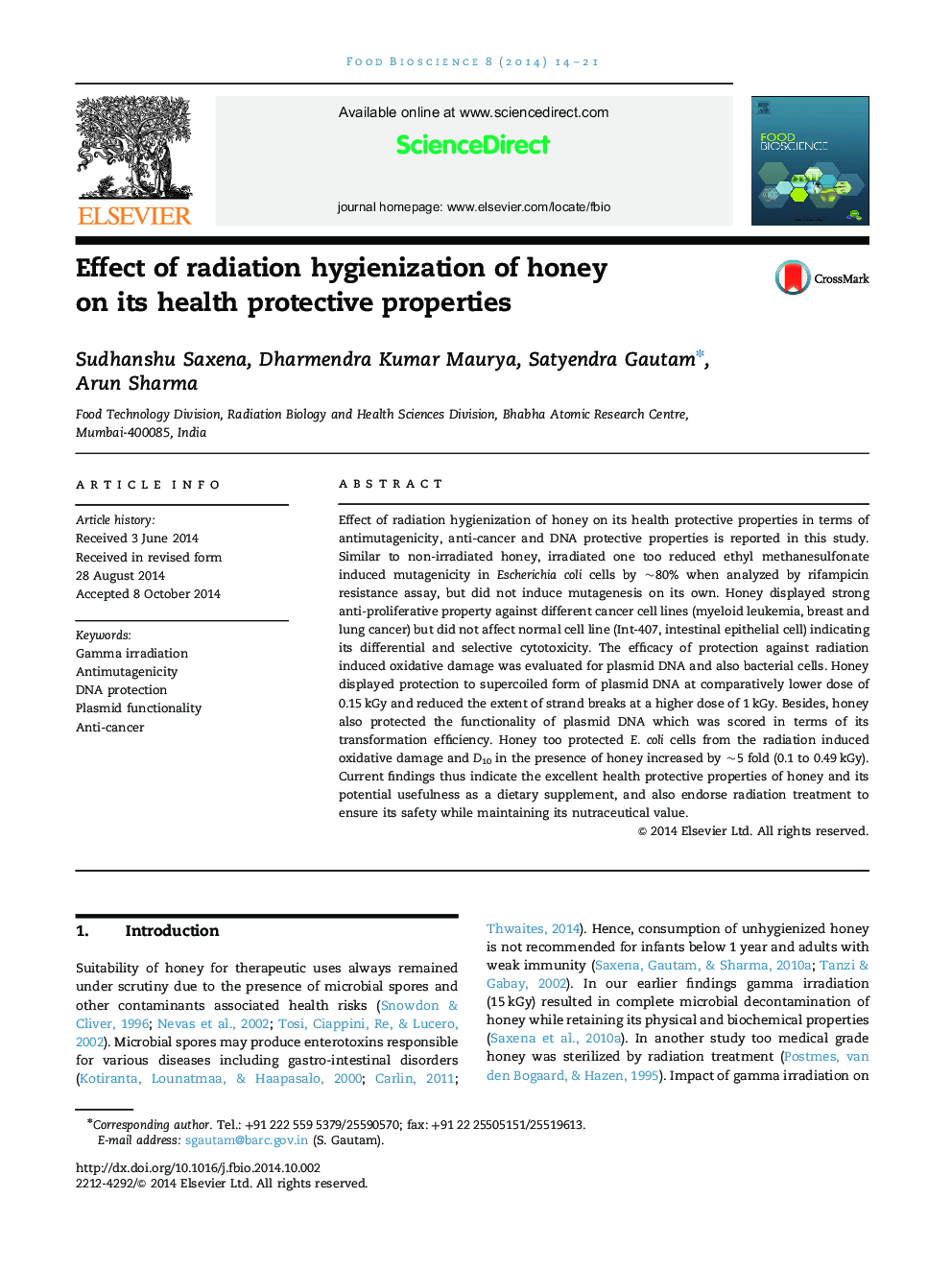| Article ID | Journal | Published Year | Pages | File Type |
|---|---|---|---|---|
| 19695 | Food Bioscience | 2014 | 8 Pages |
Effect of radiation hygienization of honey on its health protective properties in terms of antimutagenicity, anti-cancer and DNA protective properties is reported in this study. Similar to non-irradiated honey, irradiated one too reduced ethyl methanesulfonate induced mutagenicity in Escherichia coli cells by ~80% when analyzed by rifampicin resistance assay, but did not induce mutagenesis on its own. Honey displayed strong anti-proliferative property against different cancer cell lines (myeloid leukemia, breast and lung cancer) but did not affect normal cell line (Int-407, intestinal epithelial cell) indicating its differential and selective cytotoxicity. The efficacy of protection against radiation induced oxidative damage was evaluated for plasmid DNA and also bacterial cells. Honey displayed protection to supercoiled form of plasmid DNA at comparatively lower dose of 0.15 kGy and reduced the extent of strand breaks at a higher dose of 1 kGy. Besides, honey also protected the functionality of plasmid DNA which was scored in terms of its transformation efficiency. Honey too protected E. coli cells from the radiation induced oxidative damage and D10 in the presence of honey increased by ~5 fold (0.1 to 0.49 kGy). Current findings thus indicate the excellent health protective properties of honey and its potential usefulness as a dietary supplement, and also endorse radiation treatment to ensure its safety while maintaining its nutraceutical value.
